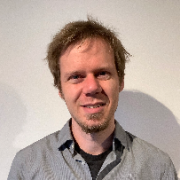– Europe/Lisbon
Online

The effective design of instruments that rely on the interaction of radiation with matter for their operation is a complex task. Furthermore, the underlying physics processes are intrinsically stochastic in nature and open a vast space of possible choices for the physical characteristics of the instrument. While even large scale detectors such as e.g. at the LHC are built using surrogates for the ultimate physics objective, the MODE Collaboration (an acronym for Machine-learning Optimized Design of Experiments) aims at developing tools also based on deep learning techniques to achieve end-to-end optimization of the design of instruments via a fully differentiable pipeline capable of exploring the Pareto-optimal frontier of the utility function for future particle collider experiments and related detectors. The construction of such a differentiable model requires inclusion of information-extraction procedures, including data collection, detector response, pattern recognition, and other existing constraints such as cost. This talk will give an introduction to the goals of the newly founded MODE collaboration and highlight some of the already existing ingredients.